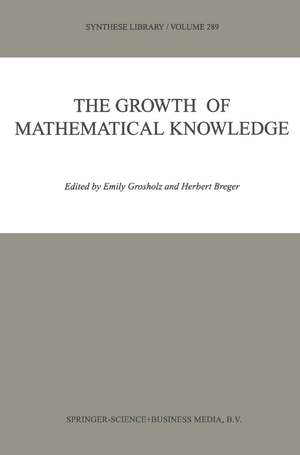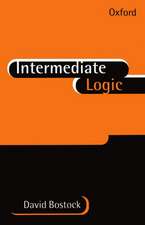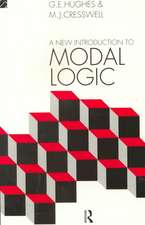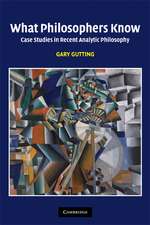The Growth of Mathematical Knowledge: Synthese Library, cartea 289
Editat de Emily Grosholz, Herbert Bregeren Limba Engleză Paperback – 9 dec 2010
| Toate formatele și edițiile | Preț | Express |
|---|---|---|
| Paperback (1) | 1388.36 lei 6-8 săpt. | |
| SPRINGER NETHERLANDS – 9 dec 2010 | 1388.36 lei 6-8 săpt. | |
| Hardback (1) | 1394.84 lei 6-8 săpt. | |
| SPRINGER NETHERLANDS – 31 ian 2000 | 1394.84 lei 6-8 săpt. |
Din seria Synthese Library
- 15%
 Preț: 638.43 lei
Preț: 638.43 lei - 18%
 Preț: 989.98 lei
Preț: 989.98 lei - 15%
 Preț: 596.69 lei
Preț: 596.69 lei - 18%
 Preț: 903.93 lei
Preț: 903.93 lei - 15%
 Preț: 586.88 lei
Preț: 586.88 lei - 15%
 Preț: 696.50 lei
Preț: 696.50 lei - 18%
 Preț: 892.90 lei
Preț: 892.90 lei - 15%
 Preț: 643.34 lei
Preț: 643.34 lei -
 Preț: 282.33 lei
Preț: 282.33 lei - 5%
 Preț: 372.19 lei
Preț: 372.19 lei -
 Preț: 443.10 lei
Preț: 443.10 lei - 15%
 Preț: 637.59 lei
Preț: 637.59 lei - 18%
 Preț: 958.88 lei
Preț: 958.88 lei - 15%
 Preț: 642.36 lei
Preț: 642.36 lei - 18%
 Preț: 1230.66 lei
Preț: 1230.66 lei - 15%
 Preț: 642.83 lei
Preț: 642.83 lei - 18%
 Preț: 1000.39 lei
Preț: 1000.39 lei -
 Preț: 389.70 lei
Preț: 389.70 lei - 15%
 Preț: 637.28 lei
Preț: 637.28 lei - 18%
 Preț: 952.26 lei
Preț: 952.26 lei - 18%
 Preț: 1231.32 lei
Preț: 1231.32 lei - 15%
 Preț: 645.96 lei
Preț: 645.96 lei -
 Preț: 395.85 lei
Preț: 395.85 lei -
 Preț: 400.47 lei
Preț: 400.47 lei - 18%
 Preț: 1225.48 lei
Preț: 1225.48 lei - 15%
 Preț: 638.89 lei
Preț: 638.89 lei - 18%
 Preț: 1232.09 lei
Preț: 1232.09 lei -
 Preț: 380.45 lei
Preț: 380.45 lei -
 Preț: 394.87 lei
Preț: 394.87 lei - 15%
 Preț: 640.37 lei
Preț: 640.37 lei - 15%
 Preț: 639.08 lei
Preț: 639.08 lei -
 Preț: 381.98 lei
Preț: 381.98 lei - 15%
 Preț: 643.00 lei
Preț: 643.00 lei - 15%
 Preț: 672.29 lei
Preț: 672.29 lei
Preț: 1388.36 lei
Preț vechi: 1693.13 lei
-18% Nou
Puncte Express: 2083
Preț estimativ în valută:
265.73€ • 286.83$ • 222.81£
265.73€ • 286.83$ • 222.81£
Carte tipărită la comandă
Livrare economică 19 aprilie-03 mai
Preluare comenzi: 021 569.72.76
Specificații
ISBN-13: 9789048153916
ISBN-10: 9048153913
Pagini: 472
Ilustrații: XLII, 416 p.
Dimensiuni: 160 x 240 x 25 mm
Greutate: 0.65 kg
Ediția:Softcover reprint of hardcover 1st ed. 2000
Editura: SPRINGER NETHERLANDS
Colecția Springer
Seria Synthese Library
Locul publicării:Dordrecht, Netherlands
ISBN-10: 9048153913
Pagini: 472
Ilustrații: XLII, 416 p.
Dimensiuni: 160 x 240 x 25 mm
Greutate: 0.65 kg
Ediția:Softcover reprint of hardcover 1st ed. 2000
Editura: SPRINGER NETHERLANDS
Colecția Springer
Seria Synthese Library
Locul publicării:Dordrecht, Netherlands
Public țintă
ResearchCuprins
Knowledge of Functions in the Growth of Mathematical Knowledge.- Huygens and the Pendulum: From Device to Mathematical Relation.- An Empiricist Philosophy of Mathematics and Its Implications for the History of Mathematics.- The Mathematization of Chance in the Middle of the 17th Century.- Mathematical Empiricism and the Mathematization of Chance: Comment on Gillies and Schneider.- The Partial Unification of Domains, Hybrids, and the Growth of Mathematical Knowledge.- Hamilton-Jacobi Methods and Weierstrassian Field Theory in the Calculus of Variations.- On Mathematical Explanation.- Mathematics and the Reelaboration of Truths.- Penrose and Platonism.- On the Mathematics of Spilt Milk.- The Growth of Mathematical Knowledge: An Open World View.- Controversies about Numbers and Functions.- Epistemology, Ontology, and the Continuum.- Tacit Knowledge and Mathematical Progress.- The Quadrature of Parabolic Segments 1635–1658: A Response to Herbert Breger.- Mathematical Progress: Ariadne’s Thread.- Voir-Dire in the Case of Mathematical Progress.- The Nature of Progress in Mathematics: the Significance of Analogy.- Analogy and the Growth of Mathematical Knowledge.- Evolution of the Modes of Systematization of Mathematical Knowledge.- Geometry, the First Universal Language of Mathematics.- Mathematical Progress.- Some Remarks on Mathematical Progress from a Structuralist’s Perspective.- Scientific Progress and Changes in Hierarchies of Scientific Disciplines.- On the Progress of Mathematics.- Attractors of Mathematical Progress: the Complex Dynamics of Mathematical Research.- On Some Determinants of Mathematical Progress.
Recenzii
`The print and paper are of highly quality. Overall it is a rich and thought-provoking contribution to a relatively undeveloped area of research. The philosophy of the growth of mathematical knowledge has few canonical texts as yet. This book may become one.'
Philosophia Mathematica, 10:1 (2002)
Philosophia Mathematica, 10:1 (2002)



















